- The Newsmakers: A session with Ms Pragya Gupta September 16, 2022
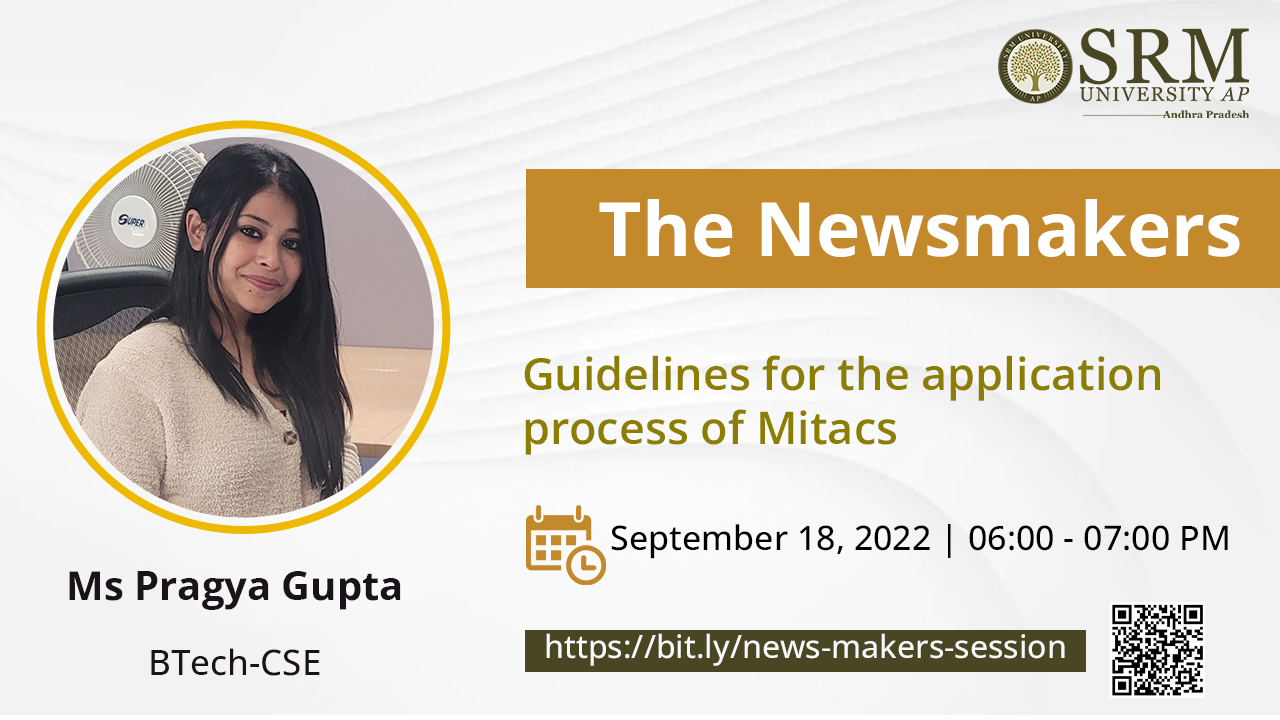
The Department of Student Affairs brings to you another segment of The Newsmakers session with Ms Pragya Gupta. Ms Pragya was one among the two students from the Department of Computer Science and Engineering who secured the coveted Mitacs Global Link Research Internship. She will deliberate on the topic “Guidelines for the application process of Mitacs”
Date: September 18, 2022
Time: 06.00 pm to 07.00 pm
Mitacs Globalink Research Internship is a highly competitive programme that pairs top-ranked international students having specific research expertise from 15 countries worldwide with faculty at top Canadian academic institutions. This is a twelve (12) week research project of mutual interest between May and October 2022.
As a fully funded programme, Mitacs and AICTE will administer the grant. Students can choose from about 14k+ projects in disciplines like Engineering, Life Sciences, Mathematics, Natural Sciences, Social Sciences, and the Humanities.
Ms Pragya got hold of the opportunity to spend three months at Athabasca University – Edmonton, Canada, as a research intern to work on the project titled “Blockchains for Data Storage and Mining in Learning Analytics”.
Join the webinar with Ms Pragya Gupta to know everything about the Mitacs Globalink Research Internship.
Continue reading → - Occurrence, environmental risks, and biological remediation of Triclosan September 16, 2022
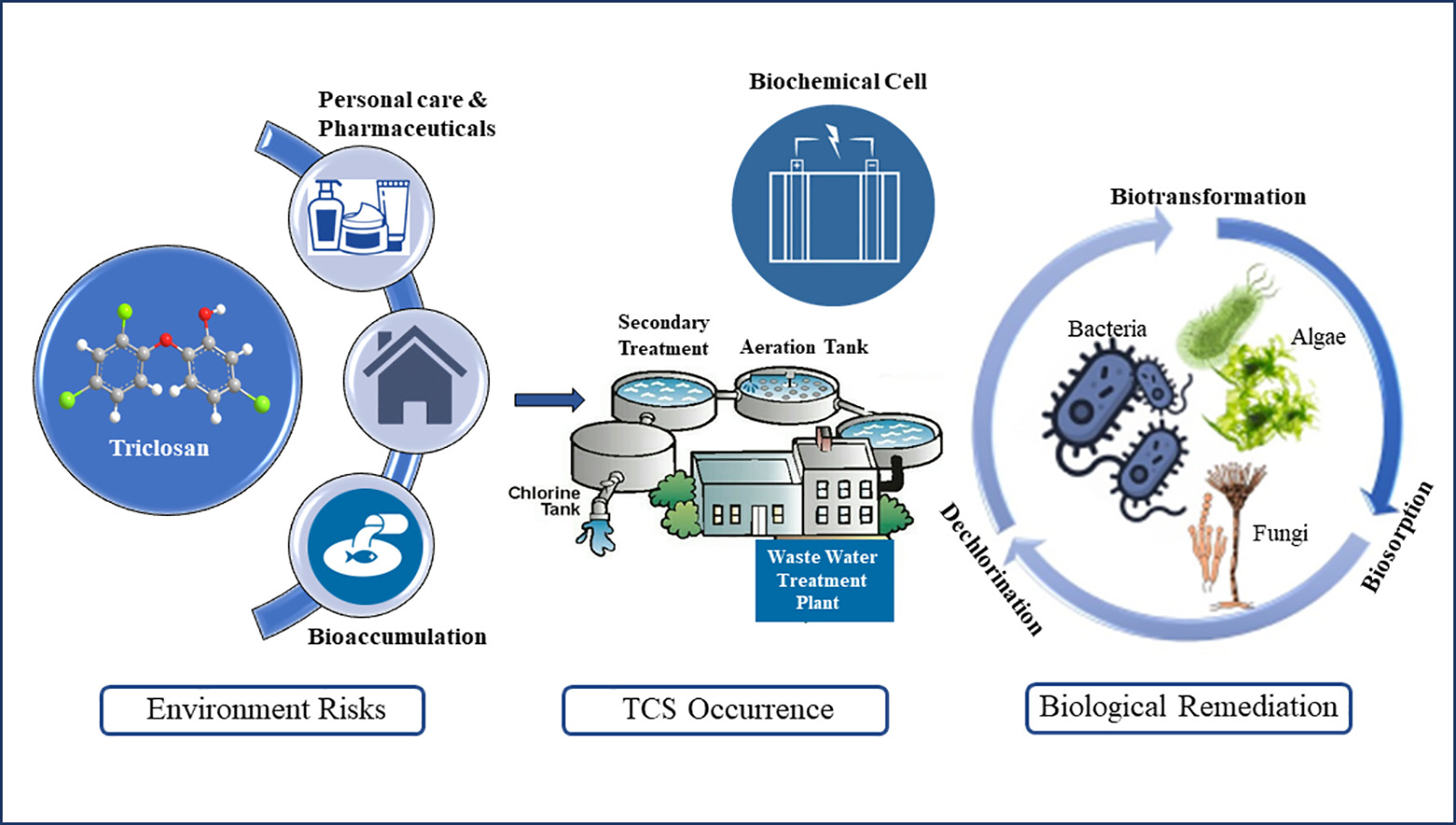
The Department of Environmental Science is glad to announce that Assistant Professor Dr Pankaj Pathak and her PhD Scholar Mr Gopa Nandikesh have published an article titled “Occurrence, environmental risks and biological remediation mechanisms of Triclosan in wastewaters: Challenges and perspectives” in the Journal of Water Process Engineering having an Impact Factor 7.34. The paper was published in collaboration with Dr Lakhveer Singh, Sardar Patel University, Himachal Pradesh.
The paper makes a comprehensive understanding of the disadvantages and consequences associated with the excessive use of Triclosan (TCS), an anti-microbial agent widely used in pharmaceutical and personal care products (PPCPs). The article also suggests various ways to achieve the bioremediation of Triclosan using microbial degraders and the different challenges associated with such practices.
The extensive use of TCS in PPCPs has increased over the past few decades, and its sizeable production and consumption are causing adverse effects on the environment and humans. TCS has been made into the list of emerging micropollutants (EMPs) due to its omnipresence in water resources and even in biological samples such as urine and breast milk. Therefore, it is imperative not only to understand the current status of TCS pollution but their occurrence, exposure routes, and environmental risks to identify remediation technologies for mitigating TCS.
Their research targets to provide cumulative data on the abundance of emerging TCS in water resources and its associated health burdens simultaneously. It is identified that TCS remediation can be achieved through advanced physical and chemical methods such as enzyme oxidation and ozonation. However, there are drawbacks such as high energy consumption and the formation of toxic by-products.
The article endeavours to provide an in-depth understanding of the biological remediation of TCS by microbial degraders as well as its superiority over other remediation techniques. Insights into the various microbial communities such as bacteria, algae, and fungi and their unique bioremediation mechanisms are comprehensively summarised. Moreover, challenges associated with existing bioremediation methods and future perspectives are also discussed in the present work.
Continue reading → - Converting fear into power September 16, 2022
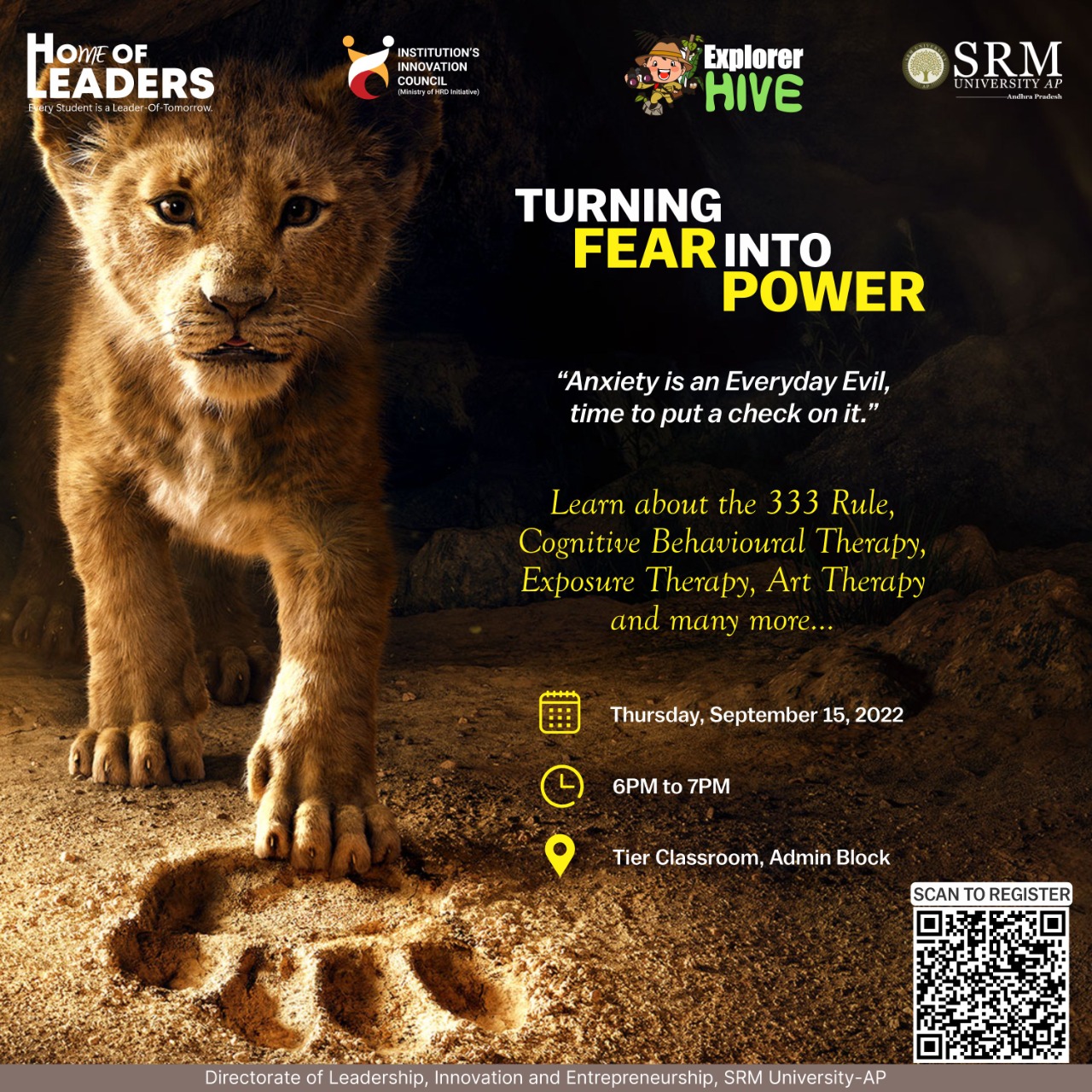 To be a leader, you must act like one and be among leaders, as that is what is demanded by the competitive and dynamic world. The Home of Leaders is a platform designed by students for students to explore beyond the boundaries of the university. It reaches out to corporate and everyday life outside the curriculum.
To be a leader, you must act like one and be among leaders, as that is what is demanded by the competitive and dynamic world. The Home of Leaders is a platform designed by students for students to explore beyond the boundaries of the university. It reaches out to corporate and everyday life outside the curriculum.A fun and knowledge session on Turning fear into power was conducted by Explorer Hive of the Department of Entrepreneurship and Innovation on September 15, 2022, to channel the energy of students into indispensable power. The session was based on the idea to confront anxiety and figuring out the route to a confident self. The session covered topics like the 333 rule, cognitive behavioral therapy, exposure therapy, art therapy, and many more.
Energy flows wherever one’s focus goes. Thus, the concept of the programme was to retain the spotlight on focus-oriented energy utilisation. On a scale of 0 to 10, 0 represents total calmness and 10 represents an utterly disturbed mind. The session featured techniques that can bring anxiety levels from 8 to 3 or even less within a span of 5 to 10 minutes.


Continue reading → - Dr Saleti Sumalatha published two patents in a row September 16, 2022
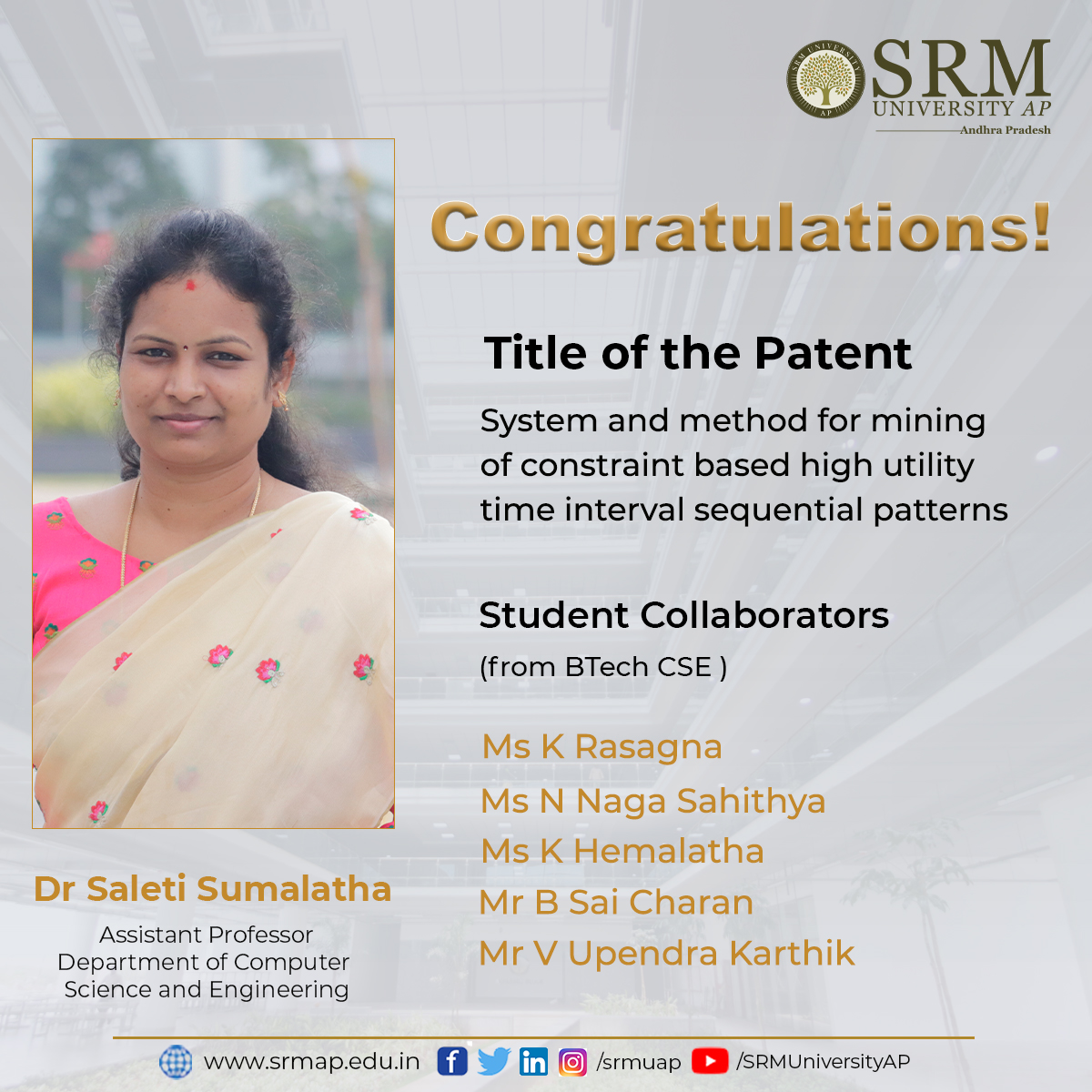
The Department of Computer Science and Engineering is glad to announce that Assistant Professor Dr Saleti Sumalatha and her students got two of their patent applications published in a row. The patent titled “System and method for mining of constraint based high utility time interval sequential patterns” (Application number: 202241044001) was published in collaboration with the BTech students; K Rasagna, N Naga Sahithya, K Hemalatha, B Sai Charan, and Upendra Karthik.
The main intention of the proposed system is to discover the sequences that include the time period between the purchases of each item. For example, if we consider a shop which sells some groceries like Grains, Milk, Yogurt, Bread and Eggs as the set of items in the database. Now, the main aim is to find the time period between the purchases of particular items that are being sold. From this, the shop owner can easily maintain the stock of completed items according to the time period.
For example, an output sequential pattern including time intervals of the form indicates that a customer who purchased item x also bought item y after three months and visited the store again after five months to buy item z. It considers the same utility threshold for each of the items in the database, which shows that each item is assumed to have the same unit profit. This is not convincing as each item is different in real-time applications and should not be treated equally. For example, the sales of” Gold bangles” will produce more profit than the sales of” Cotton Jeans”. In view of this, the research proposes UIPrefixSpan-MMU.
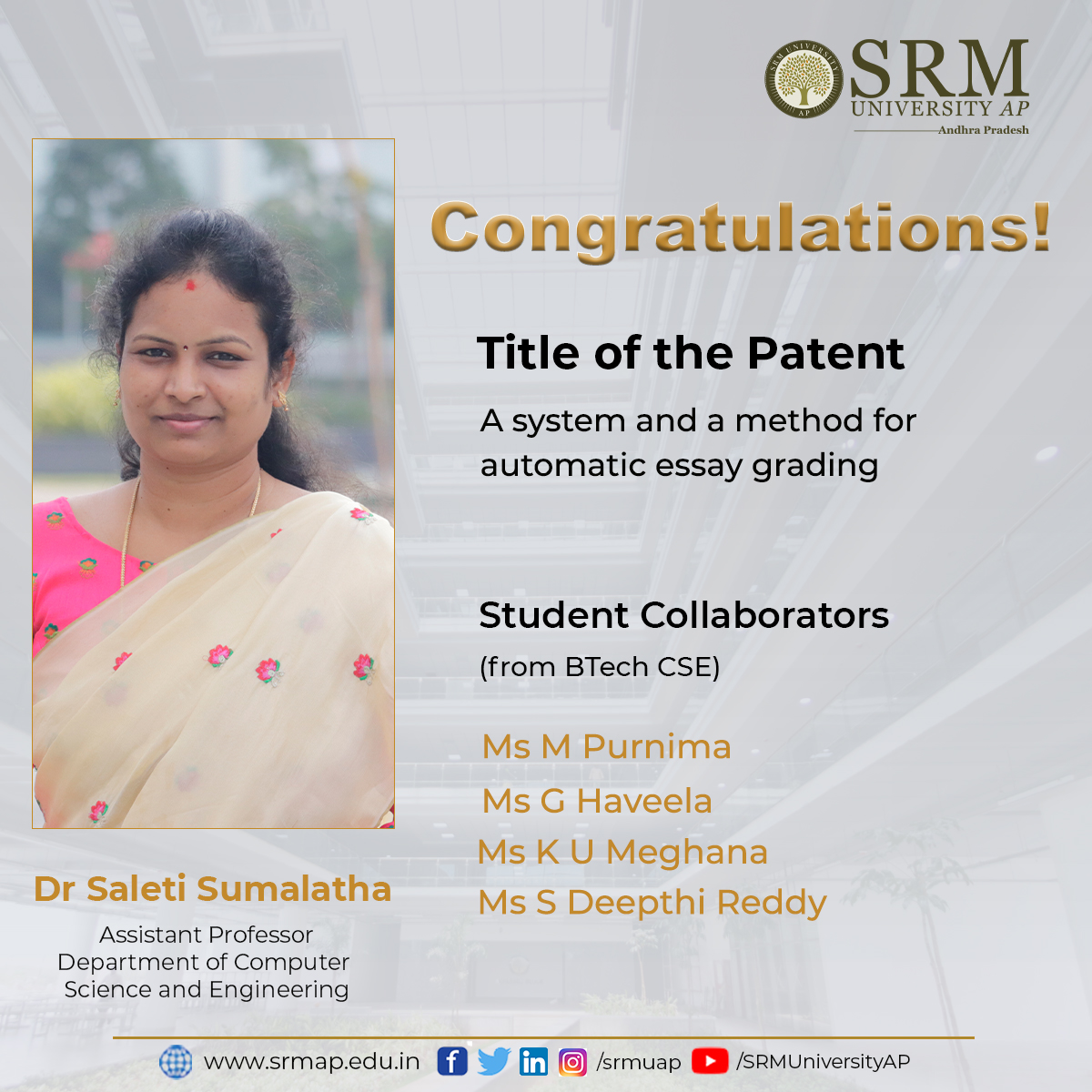
The other patent titled “A system and a method for automatic essay grading” (Application number: 202241043045) was published in collaboration with M Purnima, G Haveela, K U Meghana, and S Deepthi Reddy. Essay grading systems are being adopted by different organisations to reduce the hectic workload from a teacher’s point of view. They made a model which is trained with datasets containing different essay topics and numerous essays with scores varying in a wide range.
Essay grading systems will not only save the time for evaluation but also give accurate results. The output of the system will be quick such that it could evaluate many essays and get trained. This system benefits both the student and the teacher as well. Their model predicts the scores of the essay by comparing them with the features extracted from the trained data. This model can be used to reduce the effort of teachers to grade many essays in a limited time. The work of grading will be fastened and accurate.
Continue reading → - An introduction to federated learning September 14, 2022
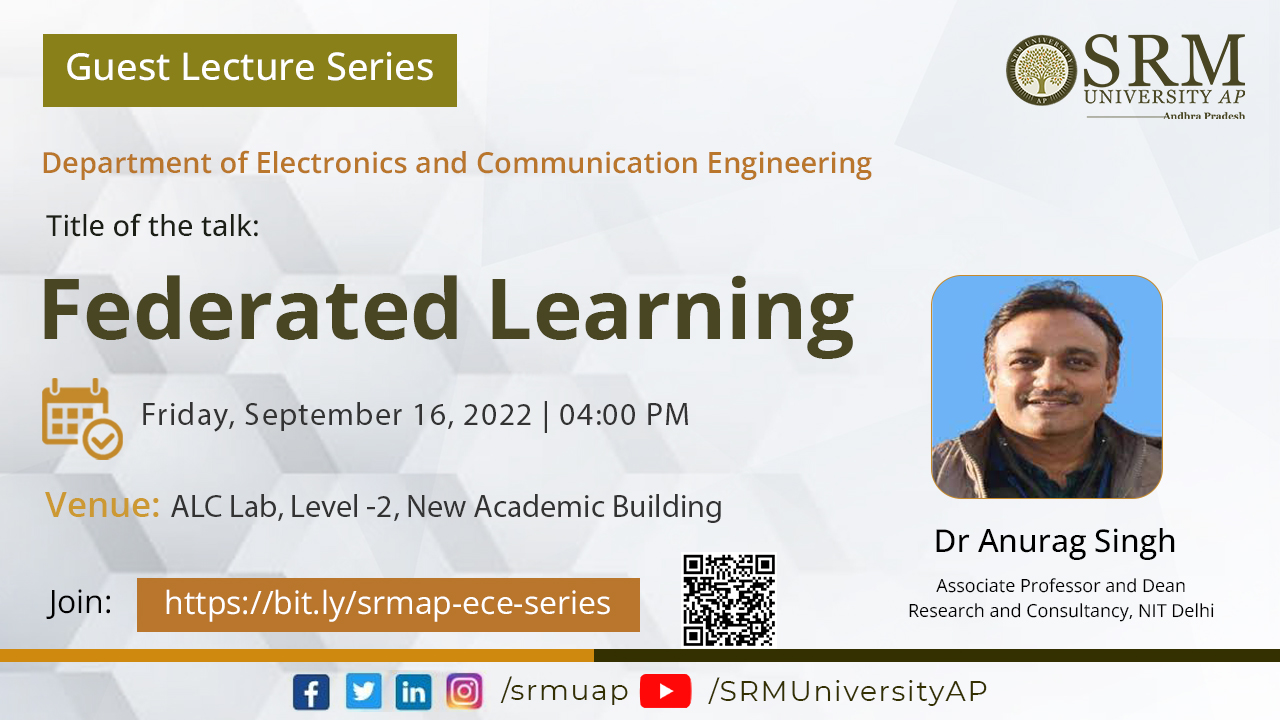
The Department of Electronics and Communication Engineering is hosting a seminar on September 16, 2022, at 4.00 pm as part of the Guest Lecture Series. Dr Anurag Singh, Associate Professor and Dean of Research and Consultancy, NIT Delhi, will deliver a talk on the topic “Federated Learning”.
Abstract of the talk
The most crucial resource for any business, individual, or person in the world is data. Everyone, whether an individual or an institution, wants to prevent a data breach. High-quality data must be subjected to machine learning algorithms. The model is trained using traditional machine learning techniques, which save data to one server. There is a chance that this method will expose personal information. A machine learning technique called federated learning (FL) enables machine learning models to train on various datasets located on various sites without sharing data. Without putting training data in a centralised location, it enables the development of a common global model. Additionally, it permits personal information to stay in local places, lowering the risk.
A new area of machine learning called federated learning already offers greater advantages than conventional machine learning techniques.
Data Security: Training data is kept locally on the devices, negating the need for a data pool.
Data variety: Heterogeneous data since it incorporates information from various users.
Real-time continuous learning: Client data is used to enhance models continuously.
Federated Learning is applied in the field of IoT, Healthcare, smartphones, Advertising, Autonomous Vehicles etc.
Speaker’s Profile
Dr Anurag Singh is currently working as the Associate Professor and Dean of Research and Consultancy at NIT Delhi. He received his PhD from the Indian Institute of Technology Kanpur. His research areas are Network Theory, Dynamics on/of Networks, Opinion Dynamics, Epidemic Modeling, Intelligent transportation system etc. Dr Anurag Singh has teaching experience at both undergraduate and graduate levels. He has taught courses ranging from the introductory level to specialized courses in Computer Science and Engineering, and Mathematics. Currently, he is mentoring students at graduate and undergraduate levels at the National Institute of Technology Delhi, India. In addition, he has also been supervising PhD students. He has around 70 publications featured across various leading journals and three DST-funded projects to his credit.
Continue reading →

